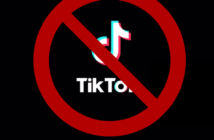“How will you get a job now?” Every young person who has gotten a visible tattoo has been asked the same question, and in this ever-changing job market, the answer to this question has become difficult to determine.
Some conservative companies still shun visible body art no matter if it is a puppy or a pentagram. Other companies do not mind tattoos as long as they are inoffensive. Still other companies encourage getting inked. The only way to answer the concerned grandparent or angry mom who asks about a tattooed person’s job prospects is to simply do some homework.
Matthew Battista, the associate director of Career Planning at the University advises students seeking jobs to cover up tattoos during interviews. For tattoos that cannot be covered by clothing, job seekers should use make-up or Band-Aids. However, the safest bet is to do some research before the interview.
“Look into what the policy is. Some companies are okay with [tattoos], and they may not have a written policy that says anything about tattoos. Know your employer; know the industry,” said Battista.
Still, he advises that even if the company does not have a tattoo policy, it is better to cover them up just to be safe. Job seekers need to look as professional as possible during an interview.
Get the job, go through orientation, and when an employer says it is okay, then feel free to expose tattoos.
“If the person you’re interviewing with has never met you before, and you have facial or neck tattoos and it’s a surprise to them, it can be a deal breaker,” said Battista. “If you’ve researched the company… understand your job… know people that work there, and they know you have body art, then it won’t be a surprise in the interview.”
Before the interview, call the human resources department, hiring manger, or check a company’s website to learn about the tattoo policy, or lack thereof.
According to Battista, many companies are becoming more accepting of facial hair and less-conventional dress attire. Since companies are becoming more liberal with these things, then tattoos should follow eventually.
“I think that most companies now are more acceptable of [tattoos]than are not,” said Battista. However, according to a 2011 careerbuilder.com and Harris Interactive study, 31 percent of employers surveyed said the number one reason they did not promote someone is because of a visible tattoo.
Some companies, such as those in artistic fields, will generally be more accepting, even encouraging of tattoos, but finance, customer service, and other traditionally conservative industries have not loosened their policies yet.
Even once a job is obtained, some people may worry that tattoos will hurt their chances of getting promoted. An executive needs to possess an air of professionalism, and corporate culture tends to frown upon tattoos. However, with a promotion comes more conservative attire that will likely cover any visibly tattoos.
Dr. J. Adam Shoemaker, an associate professor of human resource management at the University, used to work as a human resources consultant. He left the business world full-time in the early 2000’s, and even then attitudes were changing about tattoos.
“There’s more tolerance for body modification… depending on the job,” said Shoemaker. “For jobs where it’s important to look professional, like a lawyer or a banker, it hasn’t changed all that much.”
However, for other less-conservative jobs, tattoos are becoming more accepted.
“I think as standards change… it is quite possible that any business will allow tattoos or body modification of any kind,” said Shoemaker.
If displaying tattoos is truly important to someone, then he/she should not work at a company that disproves of them. A person has to fit into a company and be happy. Senior Gabrielia Pirozzi, an online criminal justice major, learned this the hard way.
“When I was a waitress, they made me either put an ace bandage over the tattoo, or cover it with make up,” said Pirozzi. “I ultimately ended up losing my job because I chose to add more onto one of my visible tattoos, and they said that it was ‘disrespectful’ to the company. They let me go due to it.”
Pirozzi’s current job is far more accepting of her tattoos.
“In my current job as a sales associate, [the business]not only loves tattoos, but encourages its employees to have tattoos because they show individuality,” said Pirozzi.
Pirozzi is not an exception among millennials. According to a 2010 Pew Research poll, nearly four in ten millennials have at least one tattoo, and out of those with tattoos, half of them have two to five tattoos.
Pirozzi advises people not to let their employers influence their decision to get a tattoo.
“You can always find a better job,” she said.
Contrary to the popular stereotype that people with lots of tattoos can only work in bars and coffee shops, many well-respected companies are tattoo friendly. The list is ever-growing: ADT, Amazon, Apple Computer, AT&T, Bank of America, Comcast, Dell Computer, Dominoes, Google, Hard Rock Café, Microsoft, Sprint, Target, Verizon, Walmart, Whole Foods, and Yahoo!. All accept tattooed employees. Nationwide Insurance is becoming more accepting by allowing tattoos for employees who do not deal directly with the public.
Today, there are many more options for tattooed individuals than operating cappuccino machines and serving beer.
In answer to all those well-meaning family members who inquire about the hire-ability of tattooed individuals: tattoos are not the kiss of death in the job market like they were even a decade ago. More conservative positions, especially those requiring frequent interactions with customers, will simply ask that an employee cover up all visible tattoos in order to look professional and trustworthy. More progressive companies or behind-the-scenes positions will be more lax about body art. Finally, some very liberal companies and industries will go so far as to encourage body art.
In the end, the best advice is to simply research the company policy before applying.




